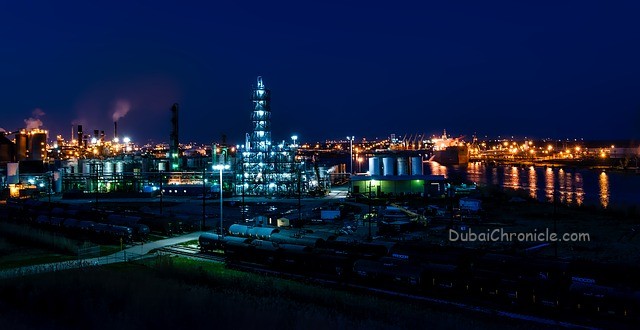
The increased oil production by Saudi Arabia and Russia combined with the COVID-19 pandemic, have precipitated a global economic slowdown that has left Oil and Gas companies wondering in which direction the industry is heading.
This is one of the topics discussed by Deloitte’s experts in the latest edition of the Deloitte Middle East Point of View: Stay calm and be prepared. In the spring 2020 issue of the magazine, Deloitte experts look at what actions organizations need to take to future-proof themselves from crises.
In their article Building resilience, Bart Cornelissen, Energy, Resources and Industrials Leader and Yasmin Fansa, Manager, Monitor Deloitte, Middle East, say that: “The situation in the Oil and Gas industry has been further affected by the radical stay-at-home measures taken by governments globally to tackle the highly contagious COVID-19 virus, drastically affecting oil demand and the larger global economy.” The authors ask the following question: As the oil industry faces the biggest crisis in decades, how should leaders build resilience in light of an uncertain future?
“Future-proofing organizations is building resilience and placing it at the core of the organization’s strategy,” they say, “addressing strategic drivers of various market environments to determine implications for industry dynamics and building optionality to gain flexibility to react to the most recent market developments quickly.”
In his article on business transformation, Vuk Prelevic, Assistant Director, Financial Advisory, Deloitte Middle East, argues that “companies are forced to navigate evolving complexities on a daily basis.” He added: “Take a step back and consider a plan for non-core, or underperforming operations that could benefit from a change in directory.”
Adeel Khan Legari, Manager, Consulting, Deloitte Middle East and his co-author in their article on the importance of the role of the Project Management Office (PMO), Transforming tradition: the Project Management Office, argue the case for the PMO renouncing traditional practices to better respond to technological disruption.
Dinesh Kumar Kator, Director, and Arijit Bhattacharjee, Manager, Tax, Deloitte Middle East, in their article The hammer of economic substance: Will the shell crack?, argue that with the rapid advent of information technology and globalization, physical barriers and distances are no longer an impediment and businesses had to become agile.
Abi Man Joshi, Tax Director, Deloitte Qatar, Martin Walker, Tax Director & Head of Securities Taxes, Deloitte UK and Jallu Fehar, Associate Tax Director, Deloitte UK, discuss New Mandatory Disclosure Rules (MDR) that will come into effect in the European Union (EU) on 1 July 2020 for cross-border arrangements that concern at least one EU member state, and their far-reaching impact in the Middle East, in their article My house, my rules.
In Keeping pace with financial crime – A dynamic approach to Transaction Monitoring, Nick Athanasi, Partner, Nipun Srivastava, Director and Nicki Koller, Assistant Manager, Financial Advisory, Deloitte Middle East look at machine learning as an emerging focus area in transaction monitoring.
This issue of the ME POV also focuses on IFRS 9 and IFRS 17. Firas Anabtawi, Partner, and Marcelle Hazboun, Senior Manager, Audit & Assurance, Deloitte Middle East, look at the challenges of IFRS 9 modelling in the UAE banking industry. Elias Ma’ayeh, Partner, and Zeeshan Abbasi, Senior Manager, Risk Advisory, Deloitte Middle East, take an in-depth look at IFRS 17.


































